I'm using Chronicle to transfer vast amounts of data from one JVM to another. Problem is that I notice a lot of jitter on my benchmarks. My knowledge of memory-mapped files is somewhat limited, but I do know that the OS swaps pages back and forth from memory to disk.
How do I configure those pages for maximum performance, in my case, for less jitter and the lowest possible latency, when using Chronicle? Do they need to be big or small? Do they need to be many or few?
Here is what I currently have on my Ubuntu box:
$ cat /proc/meminfo | grep Huge
AnonHugePages: 2048 kB
ShmemHugePages: 0 kB
HugePages_Total: 1
HugePages_Free: 1
HugePages_Rsvd: 0
HugePages_Surp: 0
Hugepagesize: 1048576 kB
